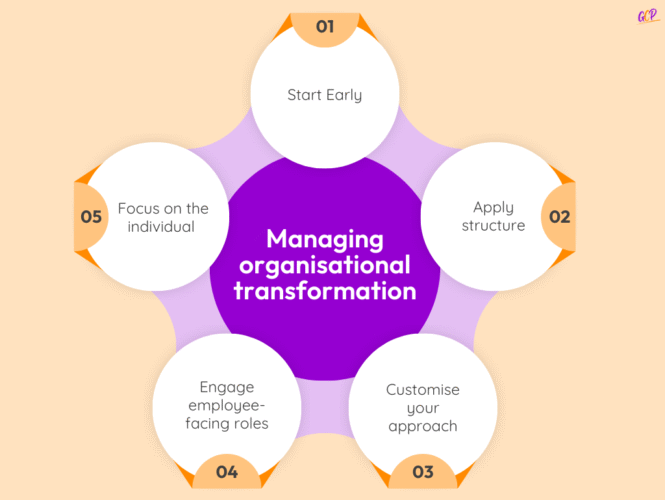These recommendations highlight the importance of adopting a deliberate, structured, and tailored approach when managing organisational transformation, particularly in addressing the human element of change.
Start Early
Initiate the transformation process at the earliest possible stage to avoid reactive responses and crisis-driven decisions. Proactive planning supports a more comprehensive and strategic approach, reducing the need for last-minute interventions. Early engagement enables the anticipation of potential obstacles and supports a smoother, more manageable transition. A wide range of Risk Management templates is available on goodchangepeople.com, saving you time and effort in developing your own.
Apply Structure
Introduce a structured framework to improve both the effectiveness and efficiency of your change efforts. A clear structure serves as a roadmap, aligning activities with overarching objectives and ensuring coherence across all initiatives. This structured approach enhances coordination and builds credibility, demonstrating that the transformation is well-organised and thoroughly thought through.
Customise Your Approach
Understand and respect the unique attributes of your organisation and the specific circumstances driving the change. Tailor your transformation strategy to reflect your organisation’s culture, needs, and challenges. Customising your approach ensures that it resonates with stakeholders and increases the likelihood of successful and sustainable change adoption.
Engage Employee-Facing Roles
Focus on those in roles that have direct interaction with employees throughout the change journey. Equip these individuals with the tools, training, and information required to effectively support and communicate the change. Empowering employee-facing roles strengthens their capacity to address concerns, answer questions, and cultivate a more positive and accepting attitude among staff.
Focus on the Individual
At the core of managing organisational transformation are the people within it. Acknowledge the emotional responses, concerns, and individual needs that emerge during change. Organisational transformation ultimately occurs through the cumulative effect of individual change journeys. By recognising and supporting the individual experience, you foster a more inclusive, compassionate, and committed environment for change to succeed.





